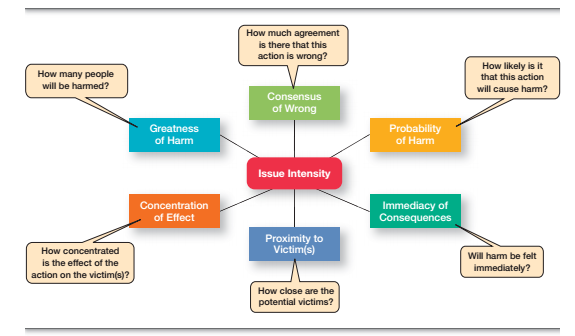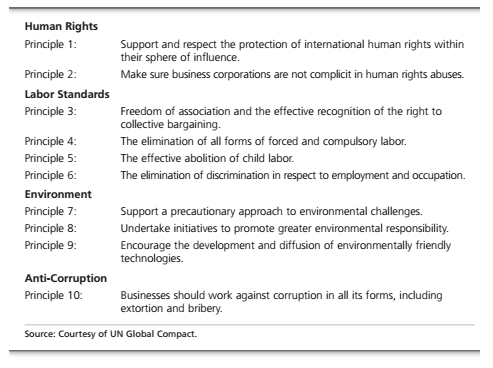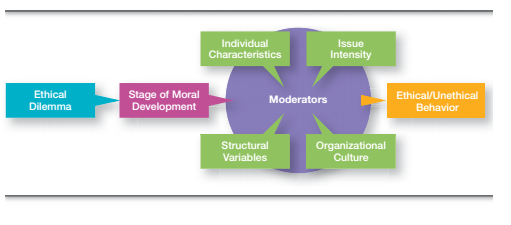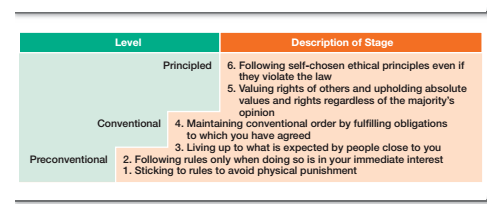Managers and Their Ethical Behaviour
150 years, that was the period of prison sentence time for the financier manager Bernard Mad off because he stole millions $ from his own client. He was handed this prison sentence by a United State district judge for him this crime was “evil”. Britain has been called by critics as a, there a controversy has been revolving over some garbage cans. So for this many local governmental organisations have launched and place micro chips in the garbage cans for monitoring them. The purpose of these chips is matching the garbage cans with their owners and track the size and weight of the garbage bins. Now this again is creating a fear within the critics that this country may follow the pay-as-you go system and hence this might discriminate for the large families in the country.
In a government report it is found that Iceland has hit the pesky volcano and the highest economic meltdown. When you will hear this extreme misbehaviour of high profile companies like Enron, Lehman Brothers, WorldCom and many other reputed companies you will think that these companies are not at all ethical. But this is not the actual case since managers from all parts of the world in everysize, in every level, and in different kind of organisations do have to face ethical dilemmas and issues. Just think whether it is ethical for any sales representative bribing a customer as inducement for buying that product? Can it be something different if this bribe is given by the sales commission? Can it be ethical if an employee uses the company’s car for his private use? Also think whether it will be ethical for an employee to use the company’s phone for personal use and using the official e-mail for his own private works?
Suppose you are managing an employee that has been working for extra hours during the weekends in every emergency situation, but then you are asking him for taking a two day sick leave just because the company is not going to compensate for any extra hours. Will this be ethical at all? Now the question is how you will manage such situations? Because the mangers are the one who does the planning, organize and leads the process it is their duty to consider such ethical issues.
Meaning of ethics- Ethics can be defined as those values, beliefs and principles that are defining what right decision is and what is wrong decision. The decisions made by the managers requires considering both who is getting effect by it and the process too. To get a clear view of the concept of ethical issues that are revolving such decisions let’s consider those factors that determines whether the mangers are ethically correct or not.
Basic factors determining ethical & unethical behaviour
The behaviour of someone whether he is being ethical or unethical when trapped in any kind of ethical issue and dilemma,depends on the factors that influence such decisions. This factors includes his individual character, his stage of moral development, the structural design of the organization, the company’s own ethics, its culture and most importantly the intensity of this current ethical issue. People lacking is moral sense obviously are going to conduct wrong things if they are constrained by policies, rules, descriptions, jobs or cultural norms that will disapprove these kind of behaviours. Similarly a person who is too moral in nature can get corrupted in an organisation which has no ethical values and which practices immoral things that are not ethical from any end. Let us have a more clear view on these factors.
Stages of ethical development
The moral development can be divided into 3 main levels with each level having 2 different stages. In each stage of this development an individual’s own moral judgement gets less dependent of factors revolving outside and he gets more oriented with his inner side.
In the 1st level, a person’s ethical value completely depends on the outer sources such as fear of punishment, greed of getting awards and rewards or fear of laws. It is pre conventional level. In the 2nd level a person’s ethical decisions depends on maintain certain standards & living up on the expectations of someone else. But at the principle level person’s ethical manner does not depend on the outside world that is to say the outside society or organisation cannot affect his individual morality. He is himself strong enough to take ethical decisions. In the below Exhibit 5.4 the 6 stages are described more expanded form.
What is the final conclusion about moral development? People behave differently in different stages. People proceeds through these 6 stages slowly. Then the moral development stops and there is no continuation. Lastly at stage 4 most of the adults behave independently without taking care about the outside world. They will be increasingly behaved ethically. Let us be brief. In stage 3 the manager follows the approval of its organization, in the next stage he does not depend on the organizations approval and does what is morally correct for him but in the final stage a manger becomes able enough to challenge the organization’s rules and behaviours if he finds that their conduct is being unethical according to him.
Individual Characteristics
There are main two individual characteristics- personalities and values that determine whether the manager behaves ethically or not. Every person joining an organization comes with his own inner value that represents basic convictions on what is right and what is wrong. The value that keeps on developing comes from what we are taught at young age and from our parents, family and teachers. So employees in a company may often have different values because they belong from different culture. People often mix stage of developments with values but they are different from each other. Values are different and they are broad that covers different ranges of issues but stages of development are the changes in individual that occurs due to the influence of outside sources.
There are 2 personality variables which influences a person’s individual actions on what is right and wrong. These personality variables includes locus of controlling and ego strength. The measurement of the strength of any person’s conviction is termed as the ego strength. People having more ego strength can resist impulses for acting unethically & rather follow convictions within them. This means people pursuing the maximum ego strength mostly do only those things those are right for him or according to him. These people have very strong sense of moral judgement and ethical values and are consistent about their actions than people who have less ego strength.
Locus of control can be termed as the degree at which people believes that they can control their fate. This internal control lets them believe that they can control their destiny at any stage. These people mainly have different personality. They like to take the responsibility of the consequences of their actions and maintain their internal standards of rights and wrongs. These people are too much consistent about their actions and internal judgments just opposite to people with external locus control. The second type of people have complete believe in fate and realizes that whatever happens to them is just their own destiny. These people do not take any responsibility of their actions and their actions mostly depend on external sources.
Structural Variables
The company’s structural design has full influence on the behaviour of its employees. The culture of the organisation determines whether an employee will be behaving ethically or not. Those structures which minimized uncertainty and ambiguity with formal regulations and rules & those that keeps on reminding employees regularly that what is moral and ethical are there to encourage moral and ethical behaviour. Some more structural influence which influences ethical choice includes goals and aims, performance appraisal system, reward allocation procedure.
Though there are companies that use goals for guiding its employees, such goals have the tendency to create unexpected weird problems. There is a study that tells that few people who cannot reach the organization’s set goals can influence others to do unethical behaviour and also engages him in such deeds, even if they do not have those economic incentives for doing so. Thus it is concluded that setting goals can also lead to conducting unethical behaviour. Certain examples of this type of phenomena includes shipping of unfinished items or products just to meet the company’s financial goals and “managing earrings” again to meet financial expectations. Also some schools excludes many students while reporting test scores so as to make the “pass rate” better.
The performance appraisal systems can also affect ethical behaviour of the employees. Some system focuses exclusively on the outcomes and some others evaluate means and ends. When the employees are being evaluated over outcomes, they are pressured to do those things that will help the outcomes look good & not get concerned about how they achieved that result. Research tells that “success can serve to excuse immoral behaviours.” The problem lies here because if managers start getting lenient on these successful employees who are continuously conducting unethical behaviour, other employs will notice that start behaving like them.
Related to this organization’s appraisal systems is how awards or rather rewards are allocated. Depending on the amount of rewards & punishments related to the goals of the organization, employees are being pressured. The more the rewards & punishments are the more employees are bound to reach the goals. This can also lead to compromising their ethical values.
Organization culture
In the exhibit 5.3 it is clearly shown how an organization’s culture can affect the ethical behaviour of employees and managers. In Ch 2 we learned that how a company’s culture consists the shared organization values. The values shows what the company actually is, believes and how the culture of the organization affects the ethical and unethical behaviour of the employees and managers. When it is about the ethical behaviour, the culture mostly to encourage good ethical standards becomes the one that’s good in controlling, risk tolerance as well as conflict tolerance. The employees in such an organization are always encouraged to practice ethical work; they are encouraged for innovative and aggressive actions. They are aware that anyway unethical practices will someday be discovered also they are confident enough to challenge expectations which they think are unrealistic or undesirable.
Many organizations are using different value based management as shared values are powerful influence on the employees. Here these values guide the managers and employees in their work. Timberland is one such company that has been using these value based management. “Make it better” is there famous statement, where the employees knows what is better as well as valued, they perform all those activities that are not only good for the company but also good for the environment. Activities include making quality products, performing social services, designing different ways to create a more eco friendly packaging system for the company.
Also in Coring employees are expected and directed to work more fairly, honest and decent. These two above companies are not only the one to create value based management but there are also many throughout the world. A survey on global companies has found that there are more 89% companies in the world who have their own value based management system. The companies believe that it is these values that are binding relationship among employees and are maintaining the company’s reputation. These companies have connected the values with the performance of the employees and they also believe that the top managers are the one to reinforce these values among the organization’ employees.
So an organization’s managers always play a chief role in the organization’s development. The mangers have the influence on the organization’ ethical behaviour and they are the ones who promote good value among the employees and encourage them to work with good ethics. Research has shown that the behaviour of managers is the only thing that enables the employees to work ethically and unethically. Thus we came across the influence of mangers on the organization’s values. The employees follow only what the authority does and put their activities as a benchmark of their jobs and work accordingly.
As we have seen in Chapter 2 that every culture have good impact on the employees than that of a weak culture. When an organization has strong culture it leads the mangers to take strong decisions regarding behaving ethically and finally the employees get affected and starts having strong ethical values and works accordingly. IBM is one such organization that has its own strong ethical values that helps it to deal ethically with its members, managers, customers and communities. So as to reinforce ethical behaviour, this company has set certain ethical standards and rules among the authority that it has made the working of the business ethical. The mangers of IMB have continuously reinforced the importance of moral behaviour as well as the fact that each member’s own behaviour towards the organization changes the reputation of the organization.
Issue intensity
A student who never can thought about breaking an instructor’s chamber to steal exam question materials, will not think twice to ask another student, who has done the same thing last year, about the expected questions this year. This is human behaviour. In the same way a manger will never think about using the company’s assets and services for personal use or taking some of the company’s supplies at home but the same manger will have great interest in the embezzlements of company’s funds. These illustrate the factors that influence ethical behaviour- intensity of ethically related issue itself.
In the below exhibit 5.5 there are 6 characteristics that determines issue intensity and what is the effect of ethical issue on every individual: consensus of wrong, greatness of harm, probability of harm, proximity to victims, immediate need of consequences, concentration of effects. These factors tells that the more no. of people gets harmed, it is true that this action is completely wrong, the more of likelihood that this action can cause harms, the faster the consequence of this action can be felt, closer a person is to victim, more concentrated effects of action will be on victim, the more the issue importance or intensity is. Employees behave more ethically when an issue is too important.
Ethics in an international Context
Are these ethical standards universal? Though there are some common ethical believes, the social and ethical differences in between countries have important changes in the ethical or unethical behaviour of the countries.

In UK a law has been passed that it would be a criminal offence on bribing foreign countries. The local customs cannot be used for allowing this practice. Recently BAE that has been alleged for several corrupted activities and bribing cases has been ordered.The FCPA has guided the US officials not to pay to any foreign politician or official to influence them, do so will be completely illegal and will become a serious criminal offence.
In certain countries, government made salaries is low because the custom dictates which they receive are small payment from which they serve. The payoff to these salaries “greases the machineries” & ensures that the things gets done. FCPA do not expressly prohibits little payoffs to outside government employees with primary administrative duties or clerical duties when these payoffs are not acceptable part in doing business in such countries. Every action apart from this is illegal.
It is very important for the mangers in different foreign countries to consider the social customs, rules, political and cultural influences on which is acceptable and appropriate behaviour. Every international corporation must clear and clarify their business culture, country culture and ethics and rules so that the employees get a clear view of the business norms and ethics and work accordingly and make ethical judgements. By going through the Global Compact (Document made by United Nations which gives details of outlining principles on doing business internationally in the fields of labour, human rights, anticorruption and environment) Check the Exhibit 5-6 to get a clear view.

Links of Previous Main Topic:-
- management and organizations a managers dilemma
- Understanding managements context constraints and challenges
- Managing in a global environment
- Managing diversity
- What is social responsibility
Links of Next Fundamentals of Management Topics:-
- Encouraging ethical behaviour
- Social responsibilities and ethical issues today world
- Case application 1 lessons from lehman brothers will we ever learn
- Case application 2 green up on aisle two
- Managing social responsibility and ethics
- Chapter 5 summary by learning outcomes
- Chapter 5 preparing for my career
- Managing change and innovation
- Managers as decision makers
- Foundations of planning
- Strategic management


